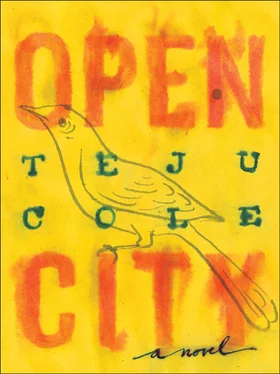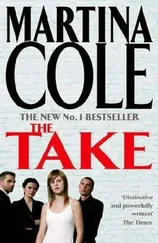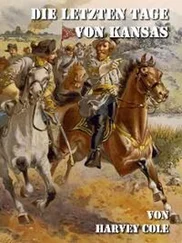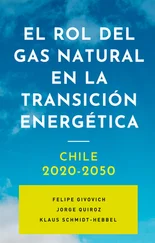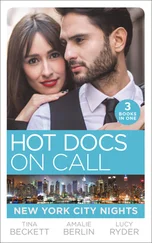I am the third of eight children, he said, and my father was a soldier. It was a modest living for our family. If I am honest about it, it was a very modest living. Soldiers were not paid much, and they did not have a high status in the society. A hard man, my father, and he was especially hard on me, because he thought I was not manly enough; he’s retired now. But things are even worse between me and my eldest brother, who lives in Cologne and is very religious. Well, my whole family is religious, and I’m actually the only one who has drifted away; but my brother is too serious about religion. There’s him, my sister, then me, we are the first three. My brother thinks I’m wasting my time on studies. He’s a businessman, and that’s what he cares about. He doesn’t understand why the studies are important to me, he has no sense of an intellectual life, but it is more than misunderstanding it. He is hostile. I have a bad relationship with my father, but it’s much worse with my brother. My brother was married to a German woman, but when he got his residency papers, he divorced her, went back home, and brought over a Moroccan wife. Was that the plan all along? I don’t know. The man is a hypocrite.
I am closer to the rest of the family. Money difficulties prevent me from visiting Morocco often, but I am close to my mother. She’s the most important person in my life, and I can bet yours is that important to you, too. It’s just how mothers are. My mother is a little worried about me; she wants me to get married, yes, but she’s more concerned that I stop smoking. Of course, she doesn’t even know that I drink. I write long letters to my younger brother, who is twenty. This is one use of my studies: I don’t tell my younger siblings what to think, but I want to help them learn to think; I want them to know that they can assess their own situations and come to their own conclusions. I was the strange child, you see, I used to miss classes so I could go elsewhere and read on my own. Taking classes never taught me anything. Everything interesting was in the books; it was books that made me aware of the variety of the world. This is why I don’t view America as monolithic. I’m not like Khalil in this way. I know that there are different people there, with different ideas, I know about Finkelstein, about Noam Chomsky, and what is important to me is that the world realizes that we are not monolithic either, in what they call the Arab world, that we are all individuals. We disagree with each other. You just saw me in disagreement with my best friend. We are individuals.
I think you and America are ready for each other, I said. As we spoke, it was hard to escape a feeling that we were having a conversation before the twentieth century had begun or just as it had started to run its cruel course. We were suddenly back in the age of pamphlets, solidarity, travel by steamship, world congresses, and young men attending to the words of radicals. I thought of, decades later, Fela Kuti in Los Angeles, the individuals who had been formed and sharpened by their encounters with American freedom and American injustice who, by seeing the worst that America could do to its marginalized peoples, had had something in them awakened. Even at this belated date, in the antiterror regime, Farouq could still benefit from entering that inferno.
The moment had a naïve excitement about it, but if I were truly inviting him as a guest, I feared the logistics of such an invitation, were it to be accepted. But he quickly said, No, I don’t like the place. I have no desire to visit America, and certainly not as an Arab, not now, not with all I would have to endure there. He had a look of distaste as he said it. I could have told him I had Arab friends, that they were fine, that his fears were baseless. But it would have been a lie. I, too, would not have wanted to visit the United States as a solitary North African Muslim with leftist beliefs.
There’s a writer called Benedict Anderson, Farouq said, who wrote against the … what is this term, les Lumières ? The Enlightenment? I said. That’s it, Farouq said, the Enlightenment. Anderson talked about how it enthrones rationality but does not fill the gap left by religious faith. My view is that this gap should be filled by the Divine, by the teachings of Islam. And I hold this as absolute and central even if I am not a good Muslim at the moment.
And what about Sharia? I said. I know that Sharia refers to more than its harshest punishments, so I can anticipate what you’ll say. You’ll say that it really is about the harmonious functioning of a society. But I do want to know what you think of these people who cut off hands, or stone women to death. The Qur’an is a text, Farouq said, but people forget that Islam also has a history. It is not static. There is the community as well, the Ummah. Not all interpretations are valid, but I’m proud of the fact that Islam is the most worldly religion there is. It concerns itself with the way we live in the world, with day-to-day life. You know the thing (and Farouq all of a sudden had a beatific look on his face, a look I hadn’t seen on him hitherto), the thing is that I have a very deep love for the Prophet. I honestly love this man and the life he lived. A magazine did a poll recently: people voted for the most influential man in history. Do you know who was number one? Mohammed. Tell me, why was this?
But do you think you could live in Mecca or Medina? What happens to individual liberty in those places? If you moved to the central cities of Islamic faith, what would become of your cigarettes and your Chimay?
Mecca and Medina are special cases. Yes, I could live in the Holy Land. I would see it as a paysage moralisé . There’s a spiritual energy in the topography, through which one can endure the physical limitations. I am drinking this now — he gestured to the bottle of beer — and I know that this is a choice I have made, and the consequence of this choice is that the wine of paradise will not be available to me. I am sure you know what Paul de Man says about insight and blindness. His theory has to do with an insight that can actually obscure other things, that can be a blindness. And the reverse, also, how what seems blind can open up possibilities. When I think about the insight that is a form of blindness, I think of rationality, of rationalism, which is blind to God and to the things that God can offer human beings. This is the failure of the Enlightenment.
And de Man, coincidentally, was a student in Brussels, at the same university I came to when I arrived from Morocco seven years ago. I had applied to do an M.A. in critical theory, because the department here was known for that. That was my dream, the way young people can have very precise dreams: I wanted to be the next Edward Said! And I was going to do it by studying comparative literature and using it as a basis for societal critique. I had to begin late, because my residency papers were being processed, and the university made me do all my course work in eight months, from January 2001 through August of that year. Then I wrote my thesis, which was on Gaston Bachelard’s Poetics of Space .
The department rejected my thesis. On what grounds? Plagiarism. They gave no reason. They just said I would have to submit another one in twelve months. I was crushed. I left the school. Plagiarism? The only possibilities are either that they refused to believe my command of English and theory or, and I think this is even more likely, that they were punishing me for world events in which I had played no role. My thesis committee had met on September 20, 2001, and to them, with everything happening in the headlines, here was this Moroccan writing about difference and revelation. That was the year I lost all my illusions about Europe. Europe was supposed to be the perfect answer to the oppression by the king in Morocco. I was disappointed.
Читать дальше
